Burnaby Real Estate Market Report: April 2025 Prices, Trends & Opportunities

First-Time Buyer Tips For Burnaby: A Complete Guide to Purchasing Your First Home in 2025
Are you dreaming of planting roots in one of Metro Vancouver's most vibrant communities? Buying your first home in Burnaby is a major milestone, but in today's competitive market, you'll need more than just enthusiasm to make it happen. This comprehensive guide breaks down everything you need to know about navigating Burnaby's real estate landscape as a first-time buyer in 2025.
KEY TAKEAWAY: Preparation is your strongest ally in Burnaby's competitive real estate market. Get your finances in order, understand the local neighbourhoods, and leverage first-time buyer programs before you start house hunting.
Current Burnaby Real Estate Market Overview
Before diving into the home-buying process, let's get the lay of the land. Burnaby's real estate market in 2025 continues to show strong growth with some distinct characteristics that first-time buyers should understand.
Price Trends Across Burnaby Regions
Burnaby is typically divided into three main regions, each with its own price points and market dynamics:
|
Region |
Benchmark Price (April 2025) |
Year-Over-Year Change |
Features |
|
Burnaby East |
$1,127,300 |
+9.8% |
Family-oriented, more single-family homes |
|
Burnaby North |
$1,009,600 |
+9.8% |
SFU proximity, mountain views, diverse housing |
|
Burnaby South |
$1,124,100 |
+9.8% |
Metrotown access, high-density, amenity-rich |
These benchmark prices reflect the cost of a typical home in each region, as reported by the Greater Vancouver REALTORS® and Burnaby Now. The 9.8% year-over-year growth shows Burnaby's continuing appeal as a desirable place to live in the Lower Mainland.
The market has been particularly hot in Burnaby North, where proximity to Simon Fraser University and excellent transit connections make it appealing to young professionals and students alike.
Entry-Level Property Options
For most first-time buyers in Burnaby, condominiums and townhouses represent the most accessible entry points to homeownership. Here's what you can expect to pay:
Condominiums:
- 1-bedroom median price: $581,000
- 2-bedroom median price: $754,000
- 3-bedroom median price: $929,000
Townhouses:
- 2-bedroom median price: $815,000
- 3-bedroom median price: $1,300,000
- 4-bedroom median price: $1,400,000
According to Zolo and YourRealtyDreams.com, condos in Burnaby stay on the market for an average of 19 days, slightly longer than the overall market average of 18 days.
FUN FACT: Despite high prices, Burnaby still offers better value per square foot than Vancouver proper, with approximately 15-20% more space for comparable prices.
Market Competitiveness Factors
Burnaby's market remains quite competitive for first-time buyers, with several factors to keep in mind:
- Average days on market: 18 days (overall), 19 days (condos)
- Sales-to-list price ratio: 98% (meaning most properties sell for just 2% below asking)
- New listings (last 28 days): 1,068
- Homes sold (last 28 days): 52
Burnaby currently ranks as the 7th most expensive city in Greater Vancouver, the 5th fastest-growing in price, and the 9th fastest-selling. This combination makes it a challenging but potentially rewarding market for first-time buyers who come prepared.
Step 1: Financial Preparation for Burnaby Home Buyers
The foundation of a successful home purchase in Burnaby begins with solid financial groundwork. Let's break down the key financial considerations for first-time buyers.
Saving for Your Down Payment
In Canada's competitive housing market, your down payment can make or break your homebuying journey. Here's what Burnaby first-timers need to know:
Minimum down payment requirements:
- 5% down for homes priced up to $500,000
- 5% on the first $500,000 plus 10% on the portion above $500,000 for homes between $500,000 and $999,999
- 20% down for homes $1 million and above
Given Burnaby's entry-level price points, most first-time buyers will need at least $29,050 (5% of $581,000) for a 1-bedroom condo, and substantially more for larger units or townhomes.
INSIDER TIP: The "Bank of Mom and Dad" funds about 30% of first-time home purchases in Metro Vancouver. If you've got family willing to help with your down payment, CMHC allows gifted down payments with proper documentation.
Saving strategies that actually work:
- The "Rent Hack": Find a roommate for your current rental, bank the difference
- Automate your savings: Set up automatic transfers on payday to your down payment fund
- Use tax-advantaged accounts: The First Home Savings Account (FHSA) offers tax benefits specifically for first-time buyers
Understanding Mortgage Pre-Approval
Before you start browsing listings, get pre-approved for a mortgage. This process gives you clarity on your budget and shows sellers you're serious.
Documentation you'll need:
- Employment verification (T4s, pay stubs, employment letter)
- Down payment proof (bank statements, investment statements)
- ID and SIN
- List of assets and liabilities
- Credit report (lenders will check this themselves)
Credit score requirements: Most conventional lenders in Canada require a minimum credit score of 680 for the best rates, though some will go as low as 640 with additional conditions. According to the Canadian Mortgage and Housing Corporation, the average credit score for first-time homebuyers in BC is 731.
Pre-approval vs. pre-qualification: These terms are often confused but represent different levels of commitment from lenders:
|
Pre-qualification |
Pre-approval |
|
Quick estimate based on self-reported info |
Detailed review of financial documents |
|
No credit check |
Full credit check performed |
|
No rate hold |
Rate typically held for 90-120 days |
|
Less weight with sellers |
Shows sellers you're a serious buyer |
Getting the best rate: In today's rising rate environment, shop around! RateHub and other rate comparison sites can help you find the best deals. Consider working with a mortgage broker who has access to multiple lenders.
Additional Costs Beyond the Purchase Price
Many first-time buyers focus solely on the down payment and mortgage, but several other costs can significantly impact your budget:
Property transfer tax: In BC, property transfer tax is calculated as:
- 1% on the first $200,000
- 2% on the portion from $200,001 to $2,000,000
- 3% on the portion from $2,000,001 to $3,000,000
- 5% on any portion above $3,000,000
For a typical 1-bedroom condo at $581,000, that's $9,620 in transfer tax, unless you qualify for the First-Time Home Buyers' Program exemption (more on that later).
Other closing costs to budget for:
- Legal fees: $1,000-$1,500
- Property appraisal: $300-$500
- Home inspection: $450-$650
- Title insurance: $250-$350
- Moving expenses: $1,000-$3,000 depending on volume and distance
- Immediate repairs or renovations: Variable, but budget at least $2,000 as a buffer
KEY TAKEAWAY: Beyond your down payment, plan for an additional 1.5-4% of the purchase price in closing costs, even with first-time buyer exemptions.
Step 2: First-Time Buyer Programs and Incentives
The silver lining to Burnaby's high prices? Several government programs designed specifically to help first-time buyers get into the market.
Federal Programs for First-Time Buyers
First Home Savings Account (FHSA): Launched in 2023, the FHSA allows first-time buyers to save up to $40,000 tax-free toward their first home. Contributions are tax-deductible (like an RRSP), and withdrawals for a qualifying home purchase are tax-free (like a TFSA). It's essentially the best of both worlds.
According to Canada Revenue Agency data, the average FHSA holder contributes about $8,000 annually to their account.
Home Buyers' Plan (HBP): The HBP allows first-time buyers to withdraw up to $35,000 from their RRSPs tax-free to purchase a home. The catch? You must repay this amount to your RRSP over 15 years, with the first payment due two years after withdrawal.
First-Time Home Buyer Incentive: This shared-equity mortgage program offers 5-10% toward your down payment in exchange for a corresponding equity stake in your home. This can lower your monthly payments, but you'll share in both the appreciation and depreciation of your property's value.
INSIDER TIP: In Burnaby's high-priced market, many first-time buyers find the First-Time Home Buyer Incentive less helpful, as the maximum qualifying income and purchase price limits often fall below local market realities. The FHSA and HBP typically provide more value for Burnaby buyers.
BC Provincial Incentives
First Time Home Buyers' Program (FTHBP): BC offers one of the most valuable provincial incentives through the FTHBP, which provides a full exemption from property transfer tax for eligible first-time buyers. To qualify:
- You must be a Canadian citizen or permanent resident
- You must have lived in BC for at least 12 months or filed at least 2 BC tax returns
- You've never owned a home anywhere in the world
- The property value must be $500,000 or less for a full exemption, with partial exemptions up to $525,000
Given Burnaby's high prices, many first-time buyers won't qualify for the full exemption. However, according to BC's Ministry of Finance, over 40% of first-time buyers in the province receive at least a partial exemption.
BC Home Owner Grant: Once you own your home, you may qualify for the BC Home Owner Grant, which reduces your annual property taxes. For 2025, the basic grant amount is $570 for homes in Metro Vancouver valued under $1.975 million. First-time buyers should apply as soon as they receive their first property tax notice.
FUN FACT: The Home Owner Grant program was introduced in 1957 when the average BC home cost just $8,900. The program has been adjusted numerous times to keep pace with skyrocketing real estate values.
Application process: For the FTHBP, your lawyer or notary typically handles the application during the closing process. For the Home Owner Grant, you'll need to apply annually through the BC government website.
Step 3: Choosing the Right Burnaby Neighborhood
Burnaby spans 98 square kilometres with distinct neighbourhoods, each offering different advantages for first-time buyers. Let's explore the three main regions:
Burnaby East - Key Features and Amenities
Neighbourhood profile and lifestyle: Burnaby East offers a more suburban feel with larger lots, more green space, and a family-oriented atmosphere. It includes neighbourhoods like Edmonds, East Burnaby, and Cariboo-Armstrong.
Transportation and schools:
- Transit: Served by the Expo Line (Edmonds Station) and numerous bus routes
- Major roads: Kingsway, Canada Way, 10th Avenue
- Schools: Several well-rated elementary and secondary schools, including Cariboo Hill Secondary and Armstrong Elementary
Entry-level options and price points: While generally known for single-family homes, East Burnaby offers some more affordable condo developments, particularly near Edmonds Station, where 1-bedroom units start around $550,000. According to Alex Lam Real Estate, these typically offer better square footage than equivalent units in Burnaby North or South.
KEY TAKEAWAY: East Burnaby offers the best value for growing families or those wanting more space, with slightly lower price-per-square-foot than other regions of Burnaby.
Burnaby North - Key Features and Amenities
Neighbourhood profile and lifestyle: Home to Simon Fraser University, Burnaby North offers mountain views, diverse housing, and excellent recreation facilities. Key neighbourhoods include Brentwood, Capitol Hill, and Westridge.
Transportation and schools:
- Transit: Millennium Line stations (Brentwood, Holdom, Sperling-Burnaby Lake)
- Major roads: Hastings Street, Lougheed Highway, Barnet Highway
- Schools: Several top-rated schools including Burnaby North Secondary and Capitol Hill Elementary
Entry-level options and price points: Burnaby North features numerous new condo developments, particularly around Brentwood Town Centre. According to data from Zolo, newer 1-bedroom units start around $600,000, while units in older buildings can sometimes be found for $550,000-$575,000.
Brentwood's massive redevelopment offers amenity-rich living with immediate access to shopping, dining, and transit, making it particularly popular among young professionals.
INSIDER TIP: Look for pre-sale opportunities in Burnaby North, which sometimes offer better value than resale units. However, be aware that completion dates can be years away, and final prices may exceed initial estimates.
Burnaby South - Key Features and Amenities
Neighbourhood profile and lifestyle: Anchored by Metrotown, BC's largest shopping centre, Burnaby South offers urban living with extensive amenities, dining options, and entertainment. Key neighbourhoods include Metrotown, Highgate, and South Slope.
Transportation and schools:
- Transit: Multiple Expo Line stations (Metrotown, Royal Oak, Edmonds)
- Major roads: Kingsway, Marine Drive, Boundary Road
- Schools: Several well-regarded schools including Moscrop Secondary and Chaffey-Burke Elementary
Entry-level options and price points: Burnaby South offers the highest density of condo options, with a wide range of price points. According to BC Homes for Sale, older 1-bedroom units (built pre-2000) can sometimes be found for under $550,000, while newer units typically start around $600,000-$650,000.
FUN FACT: Metrotown alone has over 25,000 residential units either existing or approved, making it the densest residential neighbourhood in Burnaby.
Step 4: Navigating the Buying Process in a Competitive Market
With Burnaby homes selling at 98% of asking price and staying on the market for just 18 days on average, you'll need a strategic approach to secure your first home.
Working with a Burnaby Real Estate Professional
While it might be tempting to go it alone in the age of online listings, a knowledgeable Burnaby real estate agent is invaluable in this competitive market. According to the Canadian Real Estate Association, over 90% of first-time buyers work with a real estate agent.
Selecting an agent experienced with first-time buyers: Look for agents who:
- Have specific experience with first-time buyers in Burnaby
- Can provide references from other first-time clients
- Are familiar with the specific neighbourhoods you're targeting
- Understand financing options for first-time buyers
- Are patient and willing to explain the process thoroughly
Questions to ask potential agents:
- How many first-time buyers have you worked with in the past year?
- What percentage of your clients successfully purchase within their initial budget?
- How many offers, on average, do your clients need to make before winning a property?
- What strategies do you recommend for first-time buyers in competitive situations?
- Can you provide references from recent first-time buyer clients?
KEY TAKEAWAY: The best agent isn't necessarily the one with the most sales overall, but rather the one who has successfully guided people in your specific situation through the buying process.
Crafting a Competitive Offer Strategy
In Burnaby's fast-moving market, having a well-thought-out offer strategy can make the difference between success and continual disappointment.
Subject conditions and their impact: Subject conditions protect buyers by allowing them to back out of a deal under specific circumstances. However, in competitive markets, fewer conditions make your offer more attractive to sellers.
Common subject conditions include:
- Subject to financing (even with pre-approval)
- Subject to home inspection
- Subject to strata document review (for condos/townhomes)
- Subject to sale of current property
According to Houseful, offers with no subject conditions (called "clean offers") have become increasingly common in Burnaby, with approximately 35% of successful offers in 2025 being condition-free.
Deposit requirements: Typical deposits in Burnaby range from 5-10% of the purchase price, payable within 24-48 hours of offer acceptance. Having these funds readily available in your account or via bank draft shows sellers you're serious.
Offer presentation tactics:
- Submit a personalized "buyer's letter" introducing yourself (without discriminatory information)
- Align your closing date with the seller's preferences
- Offer slightly above round numbers (e.g., $602,500 instead of $600,000)
- Consider an escalation clause for highly competitive properties
INSIDER TIP: The most successful first-time buyers in Burnaby often win properties not by offering the highest price, but by presenting the cleanest offer with the least risk for the seller.
Home Inspection Considerations
While the competitive nature of Burnaby's market has led many buyers to waive inspection conditions, this carries significant risk. Here's how to approach inspections strategically:
When to get an inspection:
- Pre-offer inspection: Some sellers provide a pre-listing inspection or allow potential buyers to conduct inspections before the offer deadline
- Subject condition: Traditional approach, but less competitive
- Post-purchase: Risky but sometimes necessary in multiple-offer situations
Common issues in Burnaby properties:
- In older condos (pre-1990s): plumbing issues, electrical capacity limitations, envelope concerns
- In newer condos: warranty coverage questions, construction quality issues
- In townhomes: water ingress, drainage problems
According to the Canadian Association of Home & Property Inspectors, approximately 86% of all homes inspected have at least one significant defect that would cost $500+ to repair.
Negotiating repairs: If your inspection reveals issues, you generally have three options:
- Request repairs before closing
- Request a credit at closing to handle repairs yourself
- Renegotiate the purchase price
For first-time buyers in Burnaby's condo market, strata document review is as important as the physical inspection. Pay special attention to:
- Depreciation reports
- Contingency reserve fund balance
- History of special assessments
- Upcoming major projects
- Rental and pet restrictions
Step 5: Post-Purchase Considerations for New Burnaby Homeowners
Congratulations on your new Burnaby home! Now let's ensure you're prepared for the responsibilities that come with it.
Understanding Strata Living (For Condo and Townhouse Buyers)
Most first-time buyers in Burnaby purchase strata properties (condos or townhouses). Understanding strata living is essential for a smooth ownership experience.
Strata fees and what they cover: Burnaby strata fees typically range from $0.35-$0.65 per square foot per month. For a 700 sq ft condo, that's approximately $245-$455 monthly. These fees generally cover:
- Building insurance (not your contents insurance)
- Common area maintenance
- Building systems (elevators, heating, cooling)
- Amenities (gym, pool, etc.)
- Contributions to contingency reserve fund
- Property management fees
According to Canadian Real Estate Magazine, properties with extensive amenities can have fees up to 40% higher than similar properties without amenities.
Reviewing strata documents: Before purchasing, carefully review:
- Strata bylaws and rules
- Meeting minutes (look for recurring issues)
- Financial statements
- Depreciation report
- Form B Information Certificate
- Strata plan
Rights and responsibilities as a strata owner: As a strata owner, you:
- Have voting rights at general meetings
- Must comply with all strata bylaws and rules
- May have restrictions on renovations
- Share responsibility for common property
- Can participate in strata council
KEY TAKEAWAY: Your strata corporation significantly impacts your lifestyle and property value. Understand what you're buying into before committing.
Property Tax Planning
Burnaby property taxes are among the most reasonable in Metro Vancouver, but still represent a significant annual expense for homeowners.
Burnaby property tax rates: For 2025, Burnaby's residential property tax rate is approximately 2.70 per $1,000 of assessed value. For a condo assessed at $581,000, that's about $1,569 annually.
Payment options and deadlines:
- Due date: First business day in July
- Payment methods: Online banking, in-person at financial institutions, by mail, at Burnaby City Hall
- Pre-authorized payment plan options available
Deferment programs: BC offers property tax deferment programs for:
- Seniors (55+)
- Families with children under 18
- Persons with disabilities
The program allows eligible homeowners to defer property taxes at a low interest rate (1.45% for 2025). This can significantly improve monthly cash flow for first-time buyers stretching their budgets, according to the BC Property Tax Deferment Program.
Conclusion: Your Path to Homeownership in Burnaby
Purchasing your first home in Burnaby is challenging but achievable with proper preparation and strategy. Remember these key steps:
- Get financially prepared: Save for your down payment, get pre-approved, understand all costs
- Take advantage of incentive programs: Use the FHSA, HBP, and provincial exemptions
- Choose the right neighbourhood: Match your lifestyle needs with your budget
- Work with experienced professionals: Find a realtor who understands first-time buyer needs
- Develop a competitive offer strategy: Balance protection with competitiveness
- Understand post-purchase responsibilities: Plan for strata living and ongoing costs
The journey to homeownership in Burnaby typically takes first-time buyers 6-24 months from starting to save to getting keys, with the house-hunting phase averaging 2-4 months according to YourRealtyDreams.com.
FINAL THOUGHT: "Buying your first home isn't just about finding a place to live—it's about building wealth, establishing roots, and creating your future. In Burnaby's market, patience and preparation are your greatest allies." — Greater Vancouver REALTORS® Association
Frequently Asked Questions
1. How much income do I need to afford a starter home in Burnaby?
For a typical 1-bedroom condo in Burnaby priced at $581,000 with 5% down ($29,050), you'll need a household income of approximately $110,000-$120,000 annually. This calculation assumes:
- 5.49% interest rate on a 25-year mortgage
- Property taxes of ~$1,600 annually
- Strata fees of ~$350 monthly
- Heating costs of ~$50 monthly
According to Canadian Mortgage Professionals, lenders typically want your Gross Debt Service ratio (housing costs) under 32% and Total Debt Service ratio (all debts) under 40% of gross income. These ratios are the main determinants of affordability rather than purchase price alone.
INSIDER TIP: If you're struggling to qualify, consider extending your amortization to 30 years (if you have 20%+ down payment) or exploring alternative lenders who may offer more flexible qualification criteria.
2. Are there any hidden costs I should be aware of when buying a condo in Burnaby?
Beyond the obvious costs, first-time condo buyers in Burnaby should prepare for:
Special assessments: These one-time charges fund major repairs or improvements not covered by regular strata fees. According to a 2025 survey by BC Homes for Sale, 28% of Burnaby condos had at least one special assessment in the past five years, averaging $5,200 per unit.
Insurance increases: Strata insurance premiums in Burnaby have risen approximately 40% since 2023, with further increases expected. This directly impacts strata fees.
Move-in fees: Many stratas charge $100-$300 for moving in, requiring elevator bookings and damage deposits.
Parking and storage: Some newer buildings sell parking stalls ($35,000-$65,000) and storage lockers ($10,000-$20,000) separately from units.
Maintenance reserves: As a prudent homeowner, set aside 1% of your property's value annually for maintenance and repairs.
3. How competitive is the Burnaby market for first-time buyers in 2025?
The competitiveness varies significantly by property type and price point:
Entry-level condos (under $600,000): Extremely competitive with approximately 70% of listings receiving multiple offers. According to Alex Lam Real Estate, these properties typically sell for 2-5% above asking price and often receive 4-8 offers.
Mid-range condos ($600,000-$800,000): Moderately competitive with about 40% receiving multiple offers.
Townhouses (under $1,000,000): Very competitive due to limited inventory. Burnaby Now reports these properties receive an average of 5 offers and typically sell within 10 days.
Townhouses ($1,000,000+): Less competitive with longer average days on market (25-30 days).
The spring market (March-June) is traditionally most competitive, while November-January offers slightly better opportunities for first-time buyers.
4. Can I use both the First Home Savings Account and the Home Buyers' Plan together?
Yes! This powerful combination is one of the best financial strategies for Burnaby first-time buyers. According to the Canada Revenue Agency, you can use both programs simultaneously for the same home purchase.
Here's the optimal strategy for most buyers:
- First, max out your FHSA contributions ($8,000/year up to $40,000 total). These contributions are tax-deductible, and withdrawals for eligible home purchases are completely tax-free.
- Then, use the HBP to withdraw up to $35,000 from your RRSP (or $70,000 for a couple). While you'll need to repay this to your RRSP over 15 years, it effectively gives you an interest-free loan from yourself.
Combined, a couple could access up to $150,000 in tax-advantaged funds ($40,000 FHSA + $35,000 HBP per person), potentially covering a substantial down payment even in Burnaby's expensive market.
KEY TAKEAWAY: Start your FHSA as early as possible—even if you're not ready to buy—as the contribution room accumulates from the account opening date.
5. What are the best mortgage lenders for first-time buyers in Burnaby?
The "best" mortgage lender depends on your specific financial situation, but several institutions offer programs tailored to first-time buyers in Burnaby's high-cost market:
For conventional mortgages (20%+ down):
- Local credit unions like Vancity and Coast Capital often offer competitive rates and more flexible terms than major banks.
- Monoline lenders like MCAP and First National frequently offer lower rates with fewer fees, though they lack branch services.
For high-ratio mortgages (less than 20% down):
- Major banks' first-time buyer programs: RBC and BMO offer programs with cashback incentives that can help offset closing costs.
- Insurer programs: CMHC, Sagen, and Canada Guaranty provide mortgage insurance needed for high-ratio mortgages, with special flexibilities for first-time buyers.
According to RateHub, working with a mortgage broker typically saves first-time buyers an average of 0.42% on their interest rate compared to dealing directly with a single bank.
FUN FACT: Even a 0.25% reduction in your mortgage rate could save you approximately $26,000 over a 25-year mortgage term on a typical Burnaby condo.
FINAL THOUGHT: "The hardest part of buying your first home isn't finding the perfect property—it's taking that first step toward preparing yourself financially and mentally for the journey. Once you commit to the process, you'll be surprised how quickly it all comes together." — Burnaby Real Estate Board. For personalized guidance and support, a trusted Burnaby Realtor can help you navigate every step with confidence.
Categories
Recent Posts


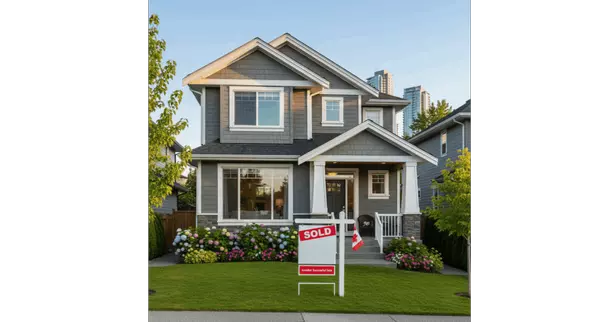


"My job is to find and attract mastery-based agents to the office, protect the culture, and make sure everyone is happy! "
